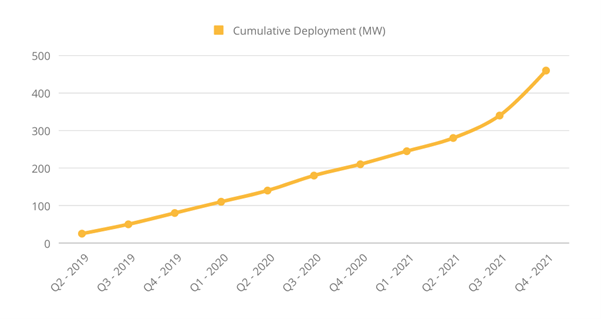Top tips when considering commercial solar power
- 11 Jul 2022
- 0 Comments

The United Kingdom’s commercial solar power sector saw record growth in 2021, making it an incredible economic success story. In 2022 we are seeing record increases in energy prices and this is also prompting many businesses to explore ways in which to significantly reduce energy bills.
Commercial solar panel systems, including agricultural solar, have a key role in the UK’s achievement of net-zero by 2050. Approximately 7 gigawatts of generation capacity is needed from commercial-scale sources by 2030, almost twice the total capacity of the proposed nuclear power plant at Hinkley Point.
The speed of recent solar deployment has increased massively in the last year – in quarter one of 2021, just over 30 megawatts (MW) were brought online, a typical amount in recent history. In contrast, quarter four saw more than double this amount deployed, with 80MW added.*


4 key reasons why you should consider solar power for your farm
This surge in solar energy popularity has come about for four key reasons, with many agricultural businesses already seeing these benefits of using renewable energy:
- Cost – solar panel costs have fallen by up to 60% since 2010, meaning payback times on some installations are now falling below just five years. With a minimum installation lifetime of 30 years, modern solar systems can effectively generate free electricity for 25 years.
- Reliability – solar panel systems generate energy all year round, and with great historical data on light levels across the UK, highly accurate forecasts of annual power generation are possible. These forecasts in turn allow agricultural businesses to plan their energy generation and consumption and reduce their exposure to volatile electricity prices.
- Ease and speed of deployment – agricultural solar projects can be delivered in less than 12 months from conception to completion.
- Proven environmental benefits – solar power is zero-carbon at the point of use, allowing farm businesses to reduce their carbon emissions, improve the sustainability of their operations and help address climate change.
Reference: Solar Energy UK - Corporate Buyers Guide









